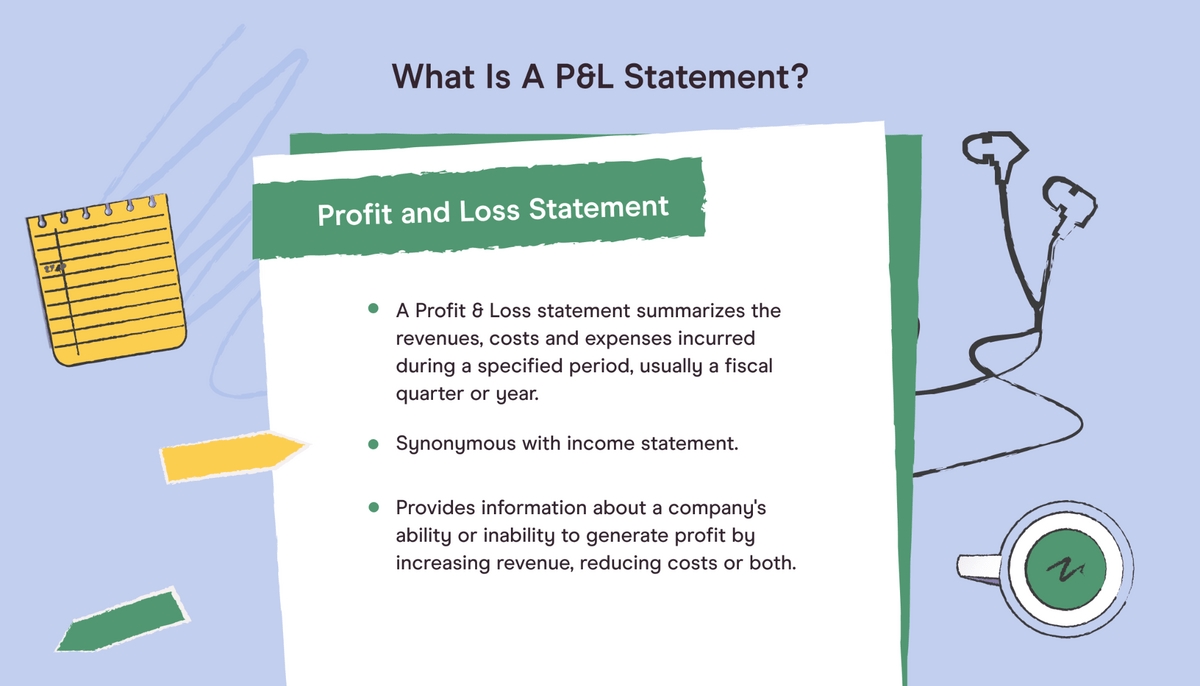

Finance
What Is A Commercial Credit Card
Published: October 25, 2023
Looking for a finance solution? Discover what a commercial credit card is and how it can benefit your business. Simplify your finances with this flexible financial tool.
(Many of the links in this article redirect to a specific reviewed product. Your purchase of these products through affiliate links helps to generate commission for LiveWell, at no extra cost. Learn more)
Table of Contents
- Introduction
- Definition of a Commercial Credit Card
- Benefits of Using a Commercial Credit Card
- How a Commercial Credit Card Works
- Features of Commercial Credit Cards
- Types of Commercial Credit Cards
- Application Process for a Commercial Credit Card
- Factors to Consider When Choosing a Commercial Credit Card
- Tips for Managing a Commercial Credit Card Effectively
- Comparison of Popular Commercial Credit Card Providers
- Conclusion
Introduction
Welcome to the world of commercial credit cards! In today’s fast-paced business environment, having a reliable and efficient tool to manage your company’s expenses is crucial. This is where commercial credit cards come into play. Whether you own a small business or work for a large corporation, a commercial credit card offers a convenient and secure way to make purchases, manage cash flow, and track expenses.
So, what exactly is a commercial credit card? It is a financial tool designed specifically for businesses to make purchases, pay bills, and manage expenses. Similar to personal credit cards, commercial credit cards come with a credit limit and offer a revolving line of credit. However, the key difference lies in their features and benefits tailored for the unique needs of businesses.
Using a commercial credit card can offer several advantages for businesses of all sizes. Firstly, it provides a streamlined and efficient way to manage expenses. Instead of relying on cash or checks, employees can make purchases using the card, reducing paperwork and simplifying the accounting process. Additionally, commercial credit cards often come with valuable rewards and benefits, such as cashback or travel rewards, which can help businesses save money and earn perks.
Furthermore, commercial credit cards provide businesses with enhanced financial control. Business owners and managers can set spending limits for individual employees, monitor and analyze spending patterns, and receive detailed expense reports. This level of transparency helps in budgeting, expense tracking, and identifying areas for cost-saving.
In this comprehensive article, we will dive deeper into the world of commercial credit cards. We will explore how commercial credit cards work, the different features they offer, the various types available, and key factors to consider when choosing the right one for your business. By the end, you will have a clear understanding of what a commercial credit card entails and how it can benefit your business.
Definition of a Commercial Credit Card
A commercial credit card is a financial tool that enables businesses to make purchases on credit and manage their expenses effectively. It is specifically designed to meet the unique needs of businesses, providing them with a convenient and secure method of payment for various goods and services.
Commercial credit cards function similarly to personal credit cards but come with distinct features and benefits tailored for business use. They are typically issued to a company or organization rather than an individual, allowing multiple employees to have access to the card under the company’s account.
One of the key features of a commercial credit card is the ability to set spending limits for individual employees. This helps businesses maintain control over their expenses by ensuring that each employee adheres to the predefined budget allocated to them. It also provides increased transparency and accountability, as the business owner or manager can closely monitor and track the spending patterns of different team members.
Commercial credit cards offer a revolving line of credit, meaning businesses can make purchases up to a specified credit limit and pay off the balance monthly or over time with interest. This flexibility in payment terms allows businesses to manage their cash flow more effectively and make necessary purchases without depleting their working capital.
Moreover, commercial credit cards often come with various rewards and benefits that can help businesses save money or earn valuable perks. These can include cashback rewards on specific categories, travel rewards, discounts on business-related expenses, or access to exclusive perks such as airport lounge access or concierge services.
It’s important to note that commercial credit cards are typically used for day-to-day business expenses, such as office supplies, travel expenses, client entertainment, and vendor payments. They are not intended for large capital expenditures or long-term financing needs, as businesses may have other financing options better suited for those purposes.
In summary, a commercial credit card is a financial tool designed for businesses to make purchases, manage expenses, and streamline their financial processes. It offers features such as spending limits, detailed expense tracking, flexible payment options, and rewards, making it a valuable asset for any company looking to simplify their financial management and enhance their purchasing power.
Benefits of Using a Commercial Credit Card
Using a commercial credit card for your business comes with a multitude of benefits that can make your financial management more efficient and cost-effective. Here are some key advantages of utilizing a commercial credit card for your business:
1. Streamlined Expense Tracking: A commercial credit card simplifies expense tracking by providing itemized statements that detail each transaction. This eliminates the need for tedious manual record-keeping and simplifies the accounting process.
2. Improved Cash Flow Management: With a commercial credit card, you can make purchases and pay bills without immediately depleting your company’s cash reserves. This allows you to maintain a healthy cash flow and allocate your working capital more strategically.
3. Enhanced Financial Control: Commercial credit cards offer customizable spending limits for individual employees, which helps you set boundaries and prevent overspending. You can also monitor employee expenditures in real-time, allowing for better financial oversight and proper budget management.
4. Expense Reporting and Analytics: Many commercial credit card providers offer robust reporting tools that generate detailed expense reports. This enables you to analyze spending patterns, identify cost-saving opportunities, and optimize your budget allocation.
5. Rewards Programs: Commercial credit cards often come with rewards programs tailored to business spending. These programs can include cashback rewards, travel rewards, discounts on business-related purchases, or even exclusive perks like airport lounge access. By leveraging these rewards, businesses can save money or earn valuable benefits.
6. Additional Security: Commercial credit cards provide an extra layer of security compared to other payment methods. They typically have fraud protection features, zero-liability policies, and the ability to easily freeze or cancel a card in case of loss or theft.
7. Vendor Discounts and Negotiation Power: Some commercial credit card providers offer partnerships with vendors, giving cardholders access to exclusive discounts or preferential pricing. This can result in significant cost savings and increase your negotiation power when working with suppliers.
8. Separation of Personal and Business Expenses: Using a commercial credit card ensures a clear separation between personal and business expenses. This simplifies tax reporting and bookkeeping, making it easier to track deductible business expenses and maintain accurate financial records.
9. Build Business Credit: Consistently using a commercial credit card and making on-time payments can help you establish and build your business credit history. This can open doors to better financing options and lower interest rates in the future.
10. Convenience and Flexibility: Commercial credit cards allow for easy and convenient purchasing both online and offline. They provide flexibility in payment terms, allowing you to choose between paying off balances monthly or carrying a balance over time with interest, depending on your business needs.
By taking advantage of these benefits, businesses can streamline their financial processes, gain better control over their expenses, and enhance their purchasing power. A commercial credit card is a valuable tool that empowers businesses to focus on growth and success while efficiently managing their finances.
How a Commercial Credit Card Works
Understanding how a commercial credit card works is essential for effectively utilizing this financial tool for your business. Here is a breakdown of the key components and processes involved:
1. Application Process: To obtain a commercial credit card, you need to apply with a card provider that offers commercial credit card services. The application typically requires you to provide information about your business, such as its legal name, address, and financial details. The card provider will assess your business’s creditworthiness and make a decision regarding your application.
2. Credit Limit: Once approved, the card provider will assign a credit limit to your commercial credit card. This is the maximum amount of credit you can utilize for business expenses. The credit limit is determined based on factors such as your business’s financial history, revenue, and creditworthiness.
3. Card Issuance: After receiving approval, the card provider will issue physical or virtual credit cards to you and authorized employees. Each employee can have their own card, linked to the company’s account, with individual spending limits if desired.
4. Purchasing: When making a purchase, the cardholder presents the commercial credit card as the method of payment. The card’s details, such as the card number, expiration date, and security code, are entered, either manually or digitally, at the point of sale.
5. Authorization: The payment request is sent to the card provider for authorization. The card provider verifies the transaction details and checks if the purchase amount is within the available credit limit. If approved, the transaction is authorized, and the cardholder receives confirmation of the successful payment.
6. Repayment: Commercial credit cards offer flexible repayment options. Typically, you can choose to pay off the balance in full each month, avoiding any interest charges, or carry a balance and make minimum monthly payments with interest. It is important to manage your card’s balance and payment schedule to avoid unnecessary interest charges and maintain a healthy credit profile.
7. Account Management: Commercial credit card accounts can be managed online or through mobile apps provided by the card issuer. These platforms allow you to track transaction history, view statements, make payments, set spending limits for individual cardholders, and access various account management features.
8. Reporting and Analytics: Card providers often offer detailed expense reports and analytics tools to help you track and analyze your business’s spending patterns. These reports provide insights into individual employee expenses, vendor spending, and overall expenditure patterns, allowing you to manage your budget more effectively and identify potential cost-saving opportunities.
9. Security: Commercial credit cards prioritize security to protect against fraudulent transactions. They often include advanced security features such as EMV chips, two-factor authentication, and fraud monitoring systems. Additionally, some card providers offer liability protection, ensuring that you are not responsible for unauthorized transactions made using your card.
By familiarizing yourself with these workings of a commercial credit card, you can leverage its features to streamline your business’s financial management, track expenses, and optimize your cash flow effectively. It’s essential to use the card responsibly, make timely payments, and stay within your approved credit limit to maintain a healthy financial profile and fully benefit from the advantages of a commercial credit card.
Features of Commercial Credit Cards
Commercial credit cards come with a range of features that are specifically designed to cater to the unique needs of businesses. Understanding these features can help you choose the right card that aligns with your business requirements. Here are some common features of commercial credit cards:
1. Customizable Spending Limits: Commercial credit cards allow business owners or administrators to set individual spending limits for each cardholder. This feature helps control expenses and prevent overspending by ensuring that employees adhere to preset budgets.
2. Expense Tracking: Commercial credit cards provide detailed transaction records, making it easier to track and categorize business expenses. With itemized statements, businesses can efficiently manage their budgets, track spending patterns, and simplify the accounting and reconciliation processes.
3. Rewards and Incentives: Many commercial credit cards offer rewards and incentives tailored to business spending. These rewards can include cashback on specific categories, travel rewards, discounts on business-related expenses, or even exclusive perks like airport lounge access. By leveraging these rewards, businesses can save money, earn valuable benefits, and enhance their purchasing power.
4. Expense Reporting and Analytics: Card providers often offer robust reporting tools that generate detailed expense reports. These reports help businesses analyze spending patterns, identify areas of overspending or potential cost savings, and streamline their financial management processes. Analytical tools may also provide insights into vendor spending and track individual employee expenses.
5. Additional Cardholder Management: Commercial credit cards enable businesses to issue multiple cards to authorized employees under one account. This feature allows for convenient control and monitoring of expenses across the organization. It also simplifies the reimbursement process for authorized cardholders, eliminating the need for employees to use personal funds for business expenses.
6. Flexible Payment Options: Commercial credit cards offer flexibility in repayment options. Businesses can choose to pay off the balance in full each month, avoiding any interest charges, or carry a balance and make monthly payments with interest. This flexibility allows businesses to manage their cash flow effectively and align their payment schedule with their financial needs.
7. Liability Protection and Fraud Monitoring: Commercial credit cards often include robust security measures to protect against fraudulent transactions. These can include EMV chip technology, two-factor authentication, and real-time fraud monitoring. Additionally, businesses are usually protected from liability for unauthorized transactions, providing peace of mind and financial security.
8. Accepted Globally: Commercial credit cards are widely accepted by merchants globally, both online and offline. This makes them a convenient and reliable payment method for businesses, especially those that have international operations or engage in cross-border transactions.
9. Integration with Expense Management Systems: Some commercial credit cards offer integration with popular expense management systems or accounting software. This integration simplifies the process of capturing and reconciling expenses, eliminating the need for manual data entry and reducing the chances of errors.
10. Customer Service and Support: Card issuers typically provide dedicated customer service and support for their commercial credit cardholders. This includes assistance with account management, dispute resolution, and general inquiries related to card usage and benefits.
By considering these features, businesses can select a commercial credit card that best aligns with their specific needs. Whether it’s controlling expenses, earning rewards, or streamlining financial processes, commercial credit cards offer a range of features aimed at simplifying and optimizing business finances.
Types of Commercial Credit Cards
Commercial credit cards come in various types, each designed to cater to different business needs and requirements. Understanding the different types of commercial credit cards can help you choose the one that aligns with your business goals. Here are some common types of commercial credit cards:
1. Standard Commercial Credit Cards: Standard commercial credit cards are the most common type and offer a comprehensive range of features and benefits. They typically provide customizable spending limits, expense tracking capabilities, rewards programs, and flexible payment options. Standard commercial credit cards are suitable for businesses of all sizes and industries looking for a general-purpose card to manage their expenses efficiently.
2. Purchasing Cards: Purchasing cards, also known as procurement cards, are specifically designed for businesses that make frequent purchases from a wide range of suppliers. These cards streamline the procurement process by providing a centralized payment method, allowing businesses to consolidate their supplier payments and negotiate better pricing terms. Purchasing cards often come with features like detailed expense reporting, spending controls, and integration with procurement systems.
3. Travel Cards: Travel cards are tailored for businesses that frequently incur travel-related expenses, such as flights, accommodations, and car rentals. These cards offer rewards and incentives specifically geared towards travel, such as airline miles, hotel upgrades, and airport lounge access. Travel cards often provide additional travel-related benefits, such as travel insurance coverage and concierge services.
4. Fuel Cards: Fuel cards are designed specifically for businesses with a fleet of vehicles or frequent fuel expenses. These cards offer discounts or cashback on fuel purchases, detailed reporting on fuel consumption, and control measures to prevent unauthorized spending. Fuel cards help businesses manage their fuel expenses more effectively and track the usage and efficiency of their vehicles.
5. Corporate Cards: Corporate cards are suitable for larger businesses or corporations with complex financial needs. They offer advanced features, such as comprehensive expense reporting, account-level customization, and integration with corporate financial systems. Corporate cards often come with additional benefits like travel insurance, higher credit limits, and dedicated account management services.
6. Industry-Specific Cards: Some commercial credit cards cater to specific industries or sectors. For example, there are cards tailored for construction companies, healthcare providers, or retailers. These industry-specific cards offer specialized features and benefits that align with the unique requirements and spending patterns of those industries.
7. Small Business Cards: Small business cards are designed for entrepreneurs and small businesses. They offer features like simplified application processes, lower credit limits, and business-specific rewards and benefits. Small business cards are a convenient option for startups and smaller businesses looking to establish credit history, manage expenses, and earn rewards.
8. Co-branded Cards: Co-branded commercial credit cards are issued in partnership between a card provider and a specific brand or association. These cards offer rewards and benefits specific to that brand, such as discounts on products or services, loyalty points, or access to exclusive events. Co-branded cards are ideal for businesses that have a strong affiliation with a particular brand and can maximize the associated benefits.
When choosing a commercial credit card, consider the specific needs and spending patterns of your business. Assess the features and benefits offered by different card types and select the one that aligns with your objectives. It’s important to review the terms and conditions, fees, interest rates, rewards structure, and customer support provided by the card issuer to make an informed decision.
Application Process for a Commercial Credit Card
Applying for a commercial credit card involves a straightforward process that varies slightly depending on the card issuer. Here are the general steps to follow when applying for a commercial credit card:
1. Research and Compare: Start by researching different commercial credit card options available from various card issuers. Compare factors such as interest rates, fees, rewards programs, credit limits, and additional features to find a card that best fits your business needs.
2. Gather Required Information: Before applying, gather the necessary information that will be required during the application process. This typically includes your business’s legal name, address, tax identification number, contact details, financial statements, and possibly personal financial information for the business owner or authorized signatory.
3. Fill out the Application: Complete the application form provided by the card issuer. This form will typically require information about your business, including its legal structure, years in operation, annual revenue, and the estimated monthly card usage and spending requirements. Be sure to provide accurate and up-to-date information to avoid delays in processing.
4. Submit Supporting Documents: Some card issuers may require additional supporting documents to verify the information provided in the application. These documents may include financial statements, bank statements, business licenses, or proof of address. Make sure to review the application requirements and provide the necessary documents in a timely manner.
5. Wait for Approval: Once submitted, the card issuer will review your application and assess your business’s creditworthiness. This process typically involves a credit check and evaluation of your business’s financial history and stability. The decision may take a few business days to a couple of weeks, depending on the card issuer’s review process.
6. Review Terms and Conditions: If your application is approved, carefully review the terms and conditions of the commercial credit card. Pay attention to details such as interest rates, credit limit, fees, rewards program, and any restrictions or limitations associated with the card.
7. Card Activation: After agreeing to the terms and conditions, you will receive the physical or virtual commercial credit card. Follow the issuer’s instructions to activate the card before it can be used for purchases.
It’s important to note that the application process can vary from one card issuer to another. Some may offer an online application option, while others may require a paper-based application. Additionally, the specific requirements and documentation needed may vary. It is recommended to contact the card issuer or visit their website for detailed information about their application process.
Before applying, carefully consider your business’s financial standing and ability to manage and repay credit. Applying for multiple commercial credit cards within a short period can negatively impact your business’s credit profile, so it’s advisable to choose and apply for the card that best suits your business needs.
By following these steps and providing accurate information, you can increase your chances of receiving approval for a commercial credit card that will offer the convenience and financial management tools your business requires.
Factors to Consider When Choosing a Commercial Credit Card
When selecting a commercial credit card for your business, it’s important to consider several key factors to ensure that the card aligns with your specific needs. Here are some important factors to consider when choosing a commercial credit card:
1. Annual Percentage Rate (APR): The APR is the interest rate charged on the outstanding balances of the credit card. If you plan to carry a balance, it’s important to select a card with a competitive APR to minimize interest costs.
2. Annual Fees: Many commercial credit cards charge an annual fee for the privilege of using the card. Consider the value of the card’s features and rewards in relation to the annual fee. If the benefits outweigh the costs, it may still be a worthwhile option.
3. Grace Period: The grace period is the timeframe during which you can pay off your balance before interest charges are applied. A longer grace period allows for more flexibility in repayment and can be beneficial if your business requires time to generate cash flow.
4. Credit Limit: Consider the credit limit offered by the card. Ensure it is sufficient to cover your business’s anticipated expenses, but avoid unnecessarily high credit limits that could tempt overspending.
5. Rewards Programs: Evaluate the rewards programs offered by different commercial credit cards. Determine which program aligns with your business’s spending habits and preferences. Common rewards include cashback, travel rewards, points for business expenses, and discounts with partner vendors.
6. Additional Benefits: Look beyond rewards programs and consider any additional benefits offered by the card. This may include expense tracking tools, fraud protection, travel insurance coverage, extended warranties on purchases, or access to exclusive events or services.
7. Card Acceptance: Consider the card’s acceptance worldwide and whether it is compatible with major payment systems. If your business involves frequent international travel or cross-border transactions, ensuring broad acceptance is crucial.
8. Customer Support: Assess the quality and availability of customer support provided by the card issuer. Quick and efficient assistance is vital in case of issues or questions about the card’s usage, billing, or rewards.
9. Integration with Other Systems: If your business utilizes expense management software or accounting systems, check if the commercial credit card can integrate with these platforms. Integration can simplify expense tracking, reporting, and reconciliation processes.
10. Issuer’s Reputation: Research the reputation and reliability of the card issuer. Review feedback from existing cardholders to gain insights into their experiences with the issuer’s customer service, billing accuracy, and overall satisfaction.
11. Flexibility in Payment Terms: Evaluate the card’s repayment options. Determine if the card offers the flexibility to pay off the balance in full each month or if it allows for carrying a balance with minimum monthly payments. Choose the option that aligns with your business’s cash flow needs.
By considering these factors, you can narrow down your options and select a commercial credit card that best suits your business’s financial needs and goals. Always thoroughly review the terms and conditions of the card before applying to ensure that it provides the features, benefits, and flexibility required for your business’s specific circumstances.
Tips for Managing a Commercial Credit Card Effectively
Managing a commercial credit card effectively is crucial to optimize your business’s financial management and maximize the benefits of using the card. Here are some valuable tips to help you manage your commercial credit card effectively:
1. Create a Spending Plan: Before using the commercial credit card, establish a spending plan or budget for your business. Determine how much you can afford to charge on the card each month and allocate funds to specific expense categories. This will help you keep track of your spending and prevent overspending.
2. Monitor Card Usage: Regularly review and monitor your commercial credit card transactions and statements. This will help you identify any unauthorized charges, errors, or fraudulent activity. Promptly reporting any discrepancies to your card issuer can help protect your business and resolve issues efficiently.
3. Set Spending Limits: If your commercial credit card allows it, set individual spending limits for each cardholder in your organization. This helps maintain control over expenses and prevents overspending. Regularly review and adjust these limits as needed.
4. Make Timely Payments: Ensure you make timely payments on your commercial credit card to avoid late fees and high-interest charges. Consider setting up automatic payments or reminders to ensure payments are made on time. Paying off the balance in full each month helps you avoid accumulating interest and maintain a healthy credit profile.
5. Utilize Expense Tracking Tools: Take advantage of the expense tracking tools provided by your commercial credit card issuer. Many cards offer detailed expense reports and analytics that can help you monitor spending patterns, identify cost-saving opportunities, and streamline your financial management processes.
6. Maximize Rewards and Benefits: Understand the rewards and benefits offered by your commercial credit card and take full advantage of them. Whether it’s cashback, travel rewards, or discounts on business expenses, make sure you understand how to earn and redeem these rewards to maximize their value.
7. Review and Negotiate Fees: Regularly review the fees associated with your commercial credit card. If you find that certain fees are too high or unnecessary, consider contacting your card issuer to negotiate or explore alternatives. Keep an eye out for any additional fees that may be incurred for specific card usage or transaction types.
8. Maintain Separation of Personal and Business Expenses: Use your commercial credit card exclusively for business expenses and avoid mixing personal purchases. This will simplify expense tracking, tax reporting, and bookkeeping, and help you manage your finances more effectively.
9. Secure Your Card and Account: Protect your commercial credit card and account information to prevent unauthorized use. Keep your card in a safe place, use strong passwords for online account access, and promptly report any lost or stolen cards to your issuer. Regularly monitor your account for any suspicious activity.
10. Regularly Review Terms and Conditions: Stay informed about any changes in the terms and conditions of your commercial credit card. Review the cardholder agreement periodically to ensure you are aware of the latest policies, fees, and benefits associated with your card.
By implementing these tips and maintaining disciplined financial management practices, you can effectively manage your commercial credit card and leverage its benefits to enhance your business’s financial stability and growth. Regularly assess your card usage and adjust strategies as needed to align with your evolving business needs.
Comparison of Popular Commercial Credit Card Providers
When choosing a commercial credit card for your business, it’s important to compare and evaluate the offerings of different card providers. Here is a comparison of some popular commercial credit card providers to help you make an informed decision:
1. American Express: American Express offers a range of commercial credit cards that provide robust expense management tools, flexible payment options, and a wide range of business-specific rewards and benefits. Their cards are widely accepted worldwide, and they offer dedicated customer support and personalized account management services.
2. Chase: Chase provides a variety of commercial credit card options, each with unique features and rewards programs tailored to different business needs. Their cards often come with attractive sign-up bonuses, competitive rewards, and integration with leading expense management software.
3. Bank of America: Bank of America offers a selection of commercial credit cards with features such as customizable spending limits, detailed expense tracking, and a variety of rewards programs. Their cards are known for their strong security features, fraud monitoring services, and intuitive online account management tools.
4. Citibank: Citibank provides commercial credit cards with features like expense management tools, customized reporting, and flexible payment options. They offer rewards programs tailored to various business needs, including travel rewards, cashback, and points-based programs.
5. Capital One: Capital One offers commercial credit cards with features like low annual fees, competitive rewards programs, and comprehensive account management tools. Their cards are known for their simplicity and flexibility, allowing businesses to tailor their card usage and redemption options to their specific needs.
6. Wells Fargo: Wells Fargo provides commercial credit cards with features such as customizable spending limits, detailed expense reporting, and cashback rewards. They offer additional benefits like travel insurance, purchase protection, and access to business-specific tools and resources.
7. U.S. Bank: U.S. Bank offers a range of commercial credit cards designed to meet the needs of businesses of all sizes. Their cards come with features like expense management tools, rewards programs, and integrated payment solutions. U.S. Bank also offers dedicated customer service and support for their commercial credit cardholders.
When comparing commercial credit card providers, consider factors such as the specific rewards and benefits offered, annual fees, interest rates, customer support, acceptance worldwide, and integration with other financial management systems. Additionally, assess the reputation and reliability of the card issuer, as well as any additional services provided, such as fraud protection, travel insurance, and expense reporting tools.
It’s important to carefully review the terms and conditions, fees, and rewards structures associated with each provider to determine which one aligns best with your business’s unique needs and financial goals. Consider evaluating your business’s spending patterns and requirements to choose a card that offers the most value and benefits for your specific circumstances.
Conclusion
Commercial credit cards offer businesses a convenient and efficient way to manage expenses, make purchases, and streamline their financial processes. Whether you have a small business or work for a large corporation, choosing the right commercial credit card can greatly benefit your business operations and financial management.
In this comprehensive article, we covered the various aspects of commercial credit cards, starting with the definition and benefits of using them. We explored how commercial credit cards work, including features such as customizable spending limits, expense tracking, and rewards programs. We also discussed the different types of commercial credit cards available and factors to consider when choosing the right one for your business.
Managing a commercial credit card effectively is crucial to harness its full potential. We provided tips on creating a spending plan, monitoring card usage, setting spending limits, making timely payments, and maximizing rewards and benefits. By following these tips, businesses can ensure responsible usage of the card, maintain control over expenses, and leverage the rewards and benefits offered by their commercial credit card provider.
Finally, we compared popular commercial credit card providers, highlighting their unique features, rewards programs, customer support, and additional benefits. This comparison can assist businesses in selecting the card provider that best aligns with their specific needs and industry requirements.
In conclusion, commercial credit cards provide businesses with a range of advantages, including streamlined expense tracking, enhanced financial control, flexible payment options, and access to rewards and benefits. By carefully evaluating your business’s financial needs and goals, along with the offerings of various card providers, you can choose a commercial credit card that empowers your business’s financial management and contributes to its overall growth and success.














